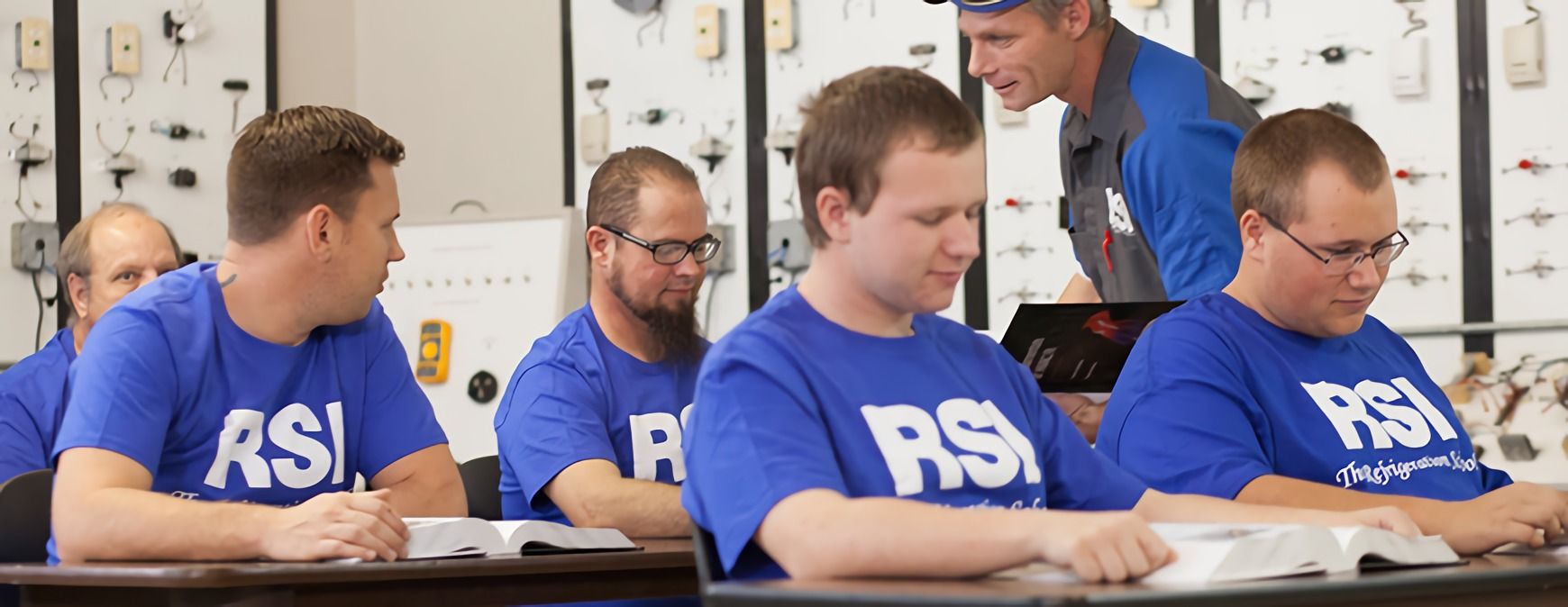
Completing vocational programs can give people a strong degree of financial independence and high levels of job satisfaction, according to the Economic Voice. Many businesses in the U.K. reported that candidates leaving traditional universities lack “soft” skills like problem solving, interpersonal communication, self-management, and resilience skills. Employers in the U.S. lament similar shortcomings among 40% of today’s college graduates.
One of the benefits of trade school vs college, is that trade schools like RSI help students gain professional skills beyond the technical abilities needed for their particular career. If you are interested in enrolling in a vocational program, consider the following professional skills that you will likely hone throughout your training:
Problem Solving Skills
Problem solving skills are important in the workplace. For example, the complexity of an HVAC system repair may require troubleshooting to determine the cause of the problem. An HVAC tech needs to assess the condition of the blower, the thermostat, and the condensate before finding the source of the problem. This requires being capable of analyzing the factors in a given situation, in this case a malfunctioning AC unit, and identifying the best possible solution to the problem. Solid problem solving skills are critical to entering the workforce after attaining education.
Interpersonal Communication Skills
In any job, good communication skills are necessary. Communication is fundamental in business, and the ability to communicate is one of the most important factors in hiring decisions. Interpersonal skills allow people to effectively communicate their needs, wishes, and abilities to another person. It’s crucial in the workplace as repairing a ventilation system may require collaboration between an HVAC tech, the client, and other HVAC professionals on-site. Without good interpersonal communication skills, it would be difficult for a tech to assess any issues.
Time-Management Skills
Time-management skills are used in deciding how to get all of your tasks completed. For example, a technician may use time-management skills to decide how to best approach a repair project. This may include deciding between installing a new part, which could take several hours or making only a temporary repair, which could be completed faster. These are especially important when a manager is not on-site. Time-management also describes how a student approaches their vocational training. This encompasses selecting a manageable class schedule, preparing thoroughly for class, studying for exams in a timely fashion, practicing techniques on your own time, etc.
Get Started on the Path to a New Career
Fill out our form to learn how we can help you change your life.
Resiliency Skills
When faced with a challenging situation, such as a setback or stress, a person can either bounce back or remain distraught. When a person rises above the situation like becoming more effective and work or home life, they demonstrate excellent resiliency. Comprehensive refrigeration training programs can be taxing from time to time, so it is important that students know how to overcome these trials. Ultimately, resiliency is how a person responds to challenges in a positive manner. Learning from mistakes is critical to professional and personal growth.
In Summary
Having the technical skills to perform a job is no longer enough to succeed at a career in the modern world, and professional skills are the defining factor in getting a job. Fortunately, trade schools like RSI allow students to acquire professional skills that go above and beyond their vocational specialty.
This blog has been labeled as archived as it may no longer contain the most up-to-date data. For a list of all current blog posts, please visit our blog homepage at https://www.rsi.edu/blog/

